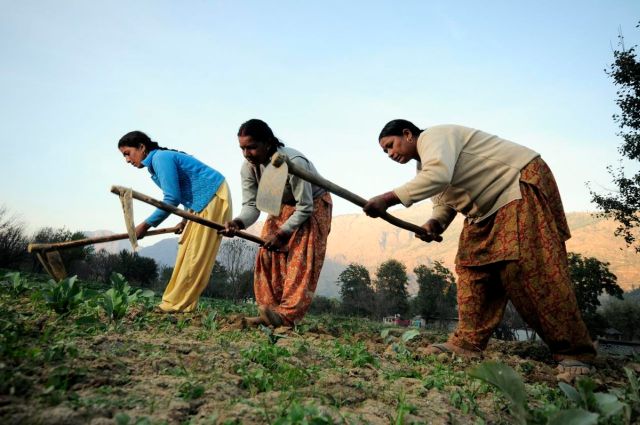
by admin | May 25, 2021 | News

Google photo
New Delhi : Union Agriculture and Farmers Welfare Minister Radha Mohan Singh on Wednesday said that 30 per cent of his ministry’s budget would be invested on the country’s women farmers.
“There will be at least 30 per cent of the budget allocation for women beneficiaries in all ongoing schemes, programmes and development activities,” he said in his address at the National Consultation of Women Farmers, organised by the National Commission for Women, UN Women and Mahila Kisan Adhikaar Manch, a forum for women farmers’ rights.
In the consultation, women farmers and their collectives from 24 states across India shared a comprehensive framework for establishing gender responsive laws, institutions, policies and programmes in the agriculture sector with the ministry.
Singh said that the ministry would be initiating women centric activities to ensure benefits of various beneficiary-oriented programs/schemes reach them.
“We will be focusing on women self-help group to connect them to micro-credit through capacity building activities and to provide information and ensuring their representation in different decision-making bodies,” he added.
—IANS

by admin | May 25, 2021 | News

Google photo
New Delhi : Leaders of women farmers from different parts of the country have gathered here for an interface with various government agencies to demand they be legitimately recognised as farmers and that their rights as farmers be upheld.
They are participating in the “National Consultation of Women Farmers”, being organised at the Constitution Club here to discuss the subject — “Realizing the Rights of Women Farmers: Developing a Roadmap for Action”.
A number of sessions are lined up for August 30.
Their main demands center around getting rights over land and resources, both individual and common, and equal entitlements over various schemes and services meant for farmers.
The most desperate request that all the speakers constantly emphasised on Tuesday was to get “recognised and supported as farmers”.
“Although, they put in the most work into farming, across crops and regions, they are hardly recognised as farmers,” Sejal Dand, member of Mahila Kisan Adhikaar Manch (MAKAAM), said.
She explained that the problem was compounded by the fact that no gender-disaggregated land records were maintained in the country, and that the state governments needed to address this issue on an urgent basis.
Farmers on the panel demanded that if the government was truly keen on doubling farmers’ incomes, then women farmers’ organisations should be provided with various financial outlays, incentives and tax exemptions.
“The government is constantly publicising Pradhan Mantri Fasal Bima Yojana. However, in states like Uttarakhand where I come from, there is no insurance cover for wild animal attacks,” said Sunita Kashyap of Mahila Umang Producer Company.
“Women are actually ending up in their fields guarding their crop day in and day out. It has increased our work tremendously and added to our losses in agriculture. This has to be addressed immediately,” she said.
She also pointed out that income tax and the new Goods and Services Taxes (GST) regime were dealing a severe blow to the profitability of collectives of women farmers.
“We make jams and pickles as well as wool-based products as a Farmer Producer Organisation (FPO). However, there is no tax exemption for us, and now GST means that we have to pay taxes upwards of 12 per cent, which can’t always be passed on to end consumers,” she added.
Amrithamdurai of Tamil Nadu added that no compensation cheques were provided to women “since men are invariably the ones who possess land titles”.
“Moreover, current trends are making things worse for us. When land is being acquired in the name of development projects, our legitimate rights are completely ignored and our abilities to provide even the basic needs are rendered vulnerable,” she said.
She complained that land rights of women even as per the existing laws like Hindu Succession Act were not being implemented.
She gave her own example to explain that even when men die, including in instances of farm suicides due to agrarian distress, women do not get to own land due to a failure of implementation of law.
She explained how landless Dalit households like hers were affected, as there was no public policy in place to address land distribution in the name of women.
Talking about climate change and the need for more resilient farming, Nageswaramma of Mallaiahgaripalli Women Farmers’ FPO in Andhra Pradesh urged for some of the progressive schemes running in her state, centered around diversity-based non-chemical farming, to be extended to other states.
“We need to reduce costs and prevent indebtedness. It is often seen that women farmers are left out of various schemes and services just because they don’t have land titles in their names,” she said.
—IANS

